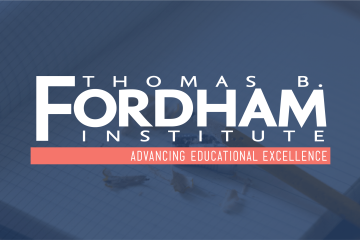Georgia is the latest on a growing list of states that make financial literacy courses a requirement for high school graduation. Call me a curmudgeon, Scrooge, or “griper,” but I’m skeptical.
From the outset, delivering financial instruction to students of any grade feels a bit like “cargo cults.” Kids wave about mock budgets and shift around fake money in the hopes of mastering financial knowledge, the utility of which for them lies over the horizon. At best, they’ll retain a vague understanding of compound interest. More likely, they’ll forget whatever instruction they received by lunchtime, let alone remember it years later when they actually need it.
The Federal Reserve has a comprehensive analysis of financial literacy interventions. Their top-line conclusion reads: “Improved financial behavior does not necessarily follow from financial information.” Other research confirms such lackluster results.
The terms “behavior” and “information” are essential to understanding why. Financial security requires not just knowledge, but action, self-control, and life habits. Regarding physical health, we understand that a donut is unhealthy—this is common knowledge—but we choose to eat it anyway. “Don’t buy stuff you cannot afford” is not some abstruse dictum, a piece of occult knowledge waiting for instruction to reveal it. In both cases, the knowledge necessary for physical and financial health are commonly known, but the behavior is the lacking component.
Not all evidence points to wasted effort. The same review from the Fed references studies that linked state-mandated financial ed curricula to “increased asset accumulation” in adulthood, and other surveys associate instruction with a higher likelihood of having a bank account. On the whole, however, school-delivered financial literacy courses seem largely ineffectual; personal habits, life experiences, and access to financial knowledge as an adult are far more important factors—all factors that schools cannot influence.
Honestly, though, whether financial literacy classes are effective is the wrong question to ask. Even if research found them increasing rates of saving or decreasing the rate of loan defaults, I’d still be skeptical of their inclusion in schools. The proper question to ask about any educational practice isn’t if it works, but how it compares to other interventions—and uses of the schools’ limited time and leverage.
Right now, the average school day lasts about 6.5 hours. With core classes—math, science, literature, and history—plus time to eat, engage in some physical activity, and gain a passing exposure to the arts, what does that leave time for? On top of that, schools are also de facto counseling centers, welfare distribution hubs, and soup kitchens. In the past decade, they’ve effectively been asked to solve every societal issue from racial disparities and drug abuse to obesity.
How much are we asking schools to achieve? Do we want to heap yet another adult problem onto their endless to-do list of things to solve? Can we continue to ask our schools to bear the weight of society’s problems? How long until Atlas shrugs?
That’s not to say that schools are ineffectual in every endeavor that they pursue. Time and again they’ve proven that through targeted academic interventions—implementing “the science of reading” or a knowledge-rich curriculum for example—they can, have, and do drastically improve student achievement. Yet when schools go beyond their remit and try to solve all of society’s problems, they accomplish little, even as such interventions cut into standard academic instruction.
What’s more, if we want our students to be financially successful, perhaps more important are the academic skills and knowledge that we can impart to them now, setting them up for career success. As such, a better intervention to address adult financial woes would be improving the core academic functions of the system while also incentivizing alternate career paths through CTE. Then, maybe, fewer students would sail off to college, take out loans, and find themselves in the very debt we’re trying to avoid, opting instead for practical careers.
Schools, when they’re good, are very good at academic instruction. However, when society sees a problem and gestures at the classroom, suggesting “let the teacher deal with it,” they more often than not do a middling job of solving the problem while giving short shrift to their core academic focus.




